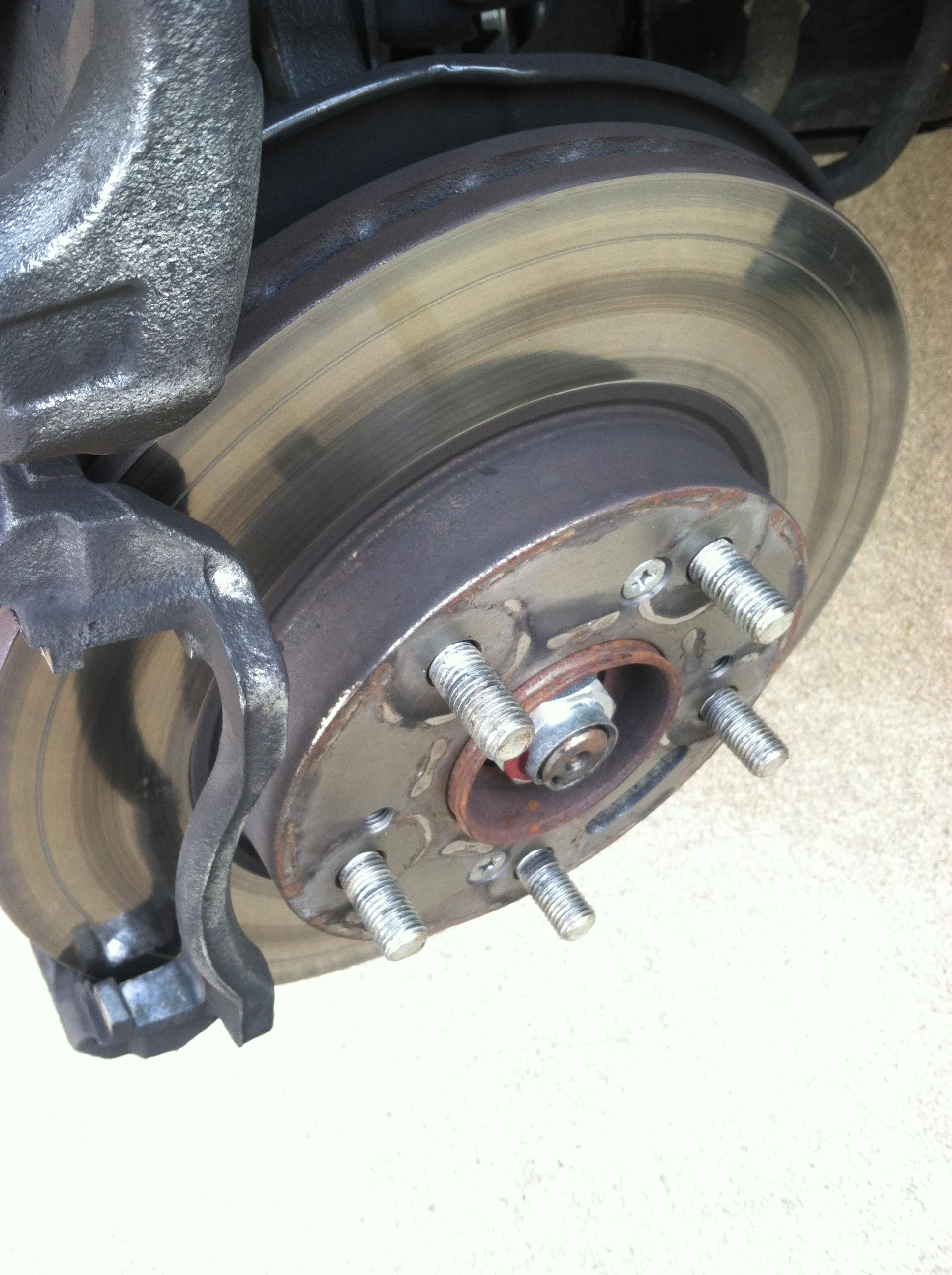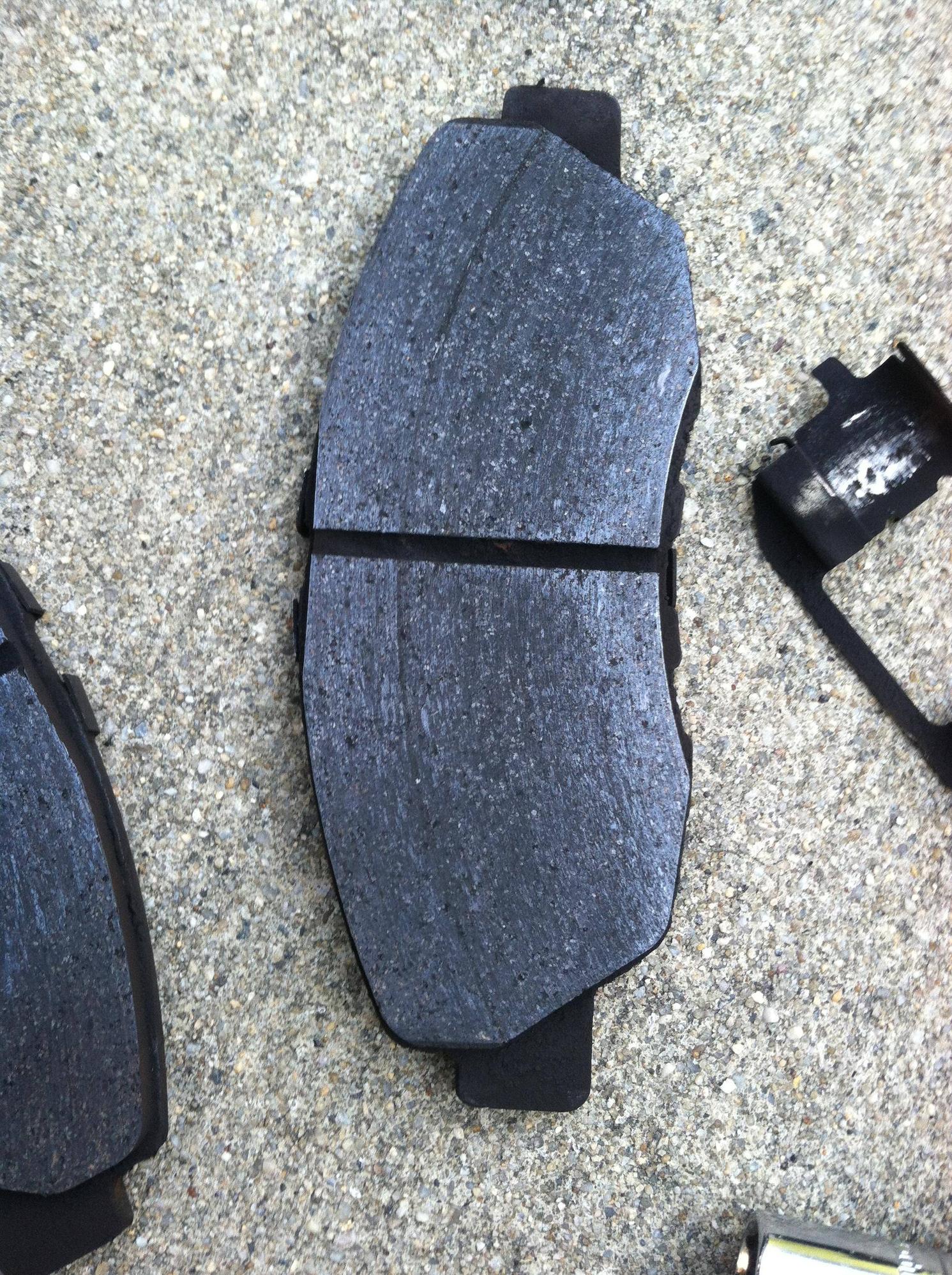02830 Income Statistics - Rhode Island - 02830
Additionally, the mechanic mentioned that the drums could be the reason behind the uneven wear on my front pads. He also mentioned that the groove on my front rotor, although far from desired, is unlikely to be the cause of the problem.
After a good bit of driving, the noise reoccurred. I took it back to the mechanic and we decided it must be the brake pads. They're pretty worn out, and like I said before, they're worn unevenly. Since the problem is intermittent, perhaps the pads are making an awkward angle with the rotor sometimes, leading to the grinding/groaning noise.
JavaScript seems to be disabled in your browser. For the best experience on our site, be sure to turn on Javascript in your browser.
I was able to capture a recording of the sound after driving around for about 2 hours one night. I've uploaded the sound here.
With that said, I'm not entirely sure if I performed the procedure correctly - perhaps I did not slow down quickly enough.
You have new brakes it takes time to them loose the original coating/surface. My have the same problem for a time but not lasted for this long.
Grooves are not normal they are the result of either wear or the previous pads not being changed soon enough and the rivets or steel backing plates cutting into the rotors. The brakes may appear to be working normally but the grooves prevent the new pads from being in full contact with the rotors. It is taking a longer distance to stop because of the grooves. In an emergency situation a few feet might be the distance between an accident or no accident, or a minor fender bender and serious injury.
Sometimes your disc soo thin that they could 'bend' because of the heat. Is this sound 'still' or it variable 'pitch'? Do you feel anything in your brake pedal?
I ordered new EBC Red Stuff (ceramic) pads and EBC USR (slotted) rotors. I had the shop install them today. So far so good - no noise - but we'll have to see what happens in a thousand or so miles once the pads are fully broken in.
The other weekend, I took apart my brakes to see if I could pinpoint any obvious problems. I also cleaned and re-greased all of the appropriate parts, although that did not help. Here are my observations when I took apart the brakes:
I went to a well reviewed independent auto repair shop in my area. The first thing the mechanic brought up was that my rear brakes (the drums) needed to be adjusted. The mechanic showed me how my left drum was completely stuck, whereas my right drum was too loose. After he adjusted the drums, he told me to drive around for another couple hundred miles and see if the noise comes back.
(Apologies for the delayed answer. I became sidetracked and completely forgot about this question, but now that I'm back on StackExchange, I noticed I never answered it.)
I figured that my rotors were warped (or, according to StopTech, pad material was transferred unevenly), and I wanted to learn more about my car's brakes, so I decided to replace my rotors and pads.
With that said, it still only happens sometimes during low speed stops - other times, I'm able to come to a low speed stop with perfectly smooth, silent brakes.
Well, the new rotors and pads were the answer. I'm surprised that the EBC OEM replacements gave me so much trouble, but the new EBC Red Stuff (ceramic) pads and slotted rotors have been wonderful. Even with my typical hard braking, no noise, and better performance, too.
Stack Exchange network consists of 183 Q&A communities including Stack Overflow, the largest, most trusted online community for developers to learn, share their knowledge, and build their careers.
Make sure you turn up your speakers so that you can hear it well. Every time you hear the noise, I was coming to a slow stop.
The noise seems to only happen after I drive around for a while. It seems to happen more often after I drive around for a while, then stop the car for a little bit. For example:
I bet if I changed my brake pads from ceramic to semi metallic the noise will go away. I think the heat of the rotors against the ceramic are making the noise. Maybe slotted rotors would dissipate the heat and stop the noise.
After a few months, my brakes started to emit a terrible grinding/groaning noise when I braked sometimes. This part is important - my brakes do not create the noise consistently - only sometimes. When I don't hear (or feel) the noise, my brakes seem as amazing as they were after I installed them.
I don't know much about fixing cars, but I had a similar problem with my 2009 Accord. The brakes would grind / gurgle on the first couple stops, but after a few minutes I could slam the brakes with no noise, and they didn't feel squishy or anything. It turned out to be bad calipers on the front brakes, according to my mechanic.
The noise can come and go. For example, I could drive around for a while, start hearing the noise, then the noise might go away, and then it might start happening a couple of stops later.
My brake pads and rotors were installed not long ago. I think in my case its my ceramic brake pads heating up the rotors creating a grinding noise. Once the rotors cool down they work fine, but if I brake hard at a high speed the grinding noise returns and will continue until they cool down. The noise however does not effect the car from stopping true, it just sounds real bad.
After I installed the EBC parts, the brakes felt orgasmic. With that said, I tried my best to avoid using them too roughly in order to follow EBC's break-in procedure (see EBC's FAQ, item #9). I followed the break-in procedure for about 500 miles or so before I slowly transitioned back into my previous driving style. Still, the brakes felt great.
The groove could simply be a bit of dirt stuck there and I doubt it would generate the noise you describe (although getting rid of it is ideal). Based on the fact that the pads are thinner at the top than at the bottom and that the noise comes and goes seemingly at random my guess is that the corresponding calipers are getting stuck on their grooves for some reason. Check again that the pads themselves can slide back and forth easily on their grooves (especially the one responsible for the uneven wear) and that the metal clips are clean, greased and intact (they bend easily, so I would look for that too).
Yes It looks like dynamic groan. This can be solved by chamfering top or side of the disc pad. Rotor surface micro undulation may cause this. Grind the discu surface.
I know I can answer my own question, BTW, but I'm going to wait until the pads are broken in before I conclude the answer to the problem.
I tried to bed in the pads using the 60-10 x5 procedure (slow down from 60 MPH to 10 MPH several times with short cooling periods in between, also described on EBC's FAQ).

I have a 2012 Honda Civic LX. It's my first car, and I must say I drive it rather hard. After about 20k miles, my brakes started to feel wavy - I would hold the brake pedal, and the car would slow down in an inconsistent, wavy manner.
I bought new EBC rotors (OEM replacements) and pads (Ultimax2, OEM replacements), and I replaced the originals. I made sure I installed the EBC parts exactly the way the OEM parts were installed, and I was sure to check the brake fluid level and re-grease the caliper pins and pad brackets.
Sometimes, especially after the noise happens or before it's about to happen, I can hear a faint screeching/squeeling sound when I brake. I can only hear it when I roll my window down and practically stick my head out the window. This sound is very, very different from the grinding/groaning noise.





 8613869596835
8613869596835